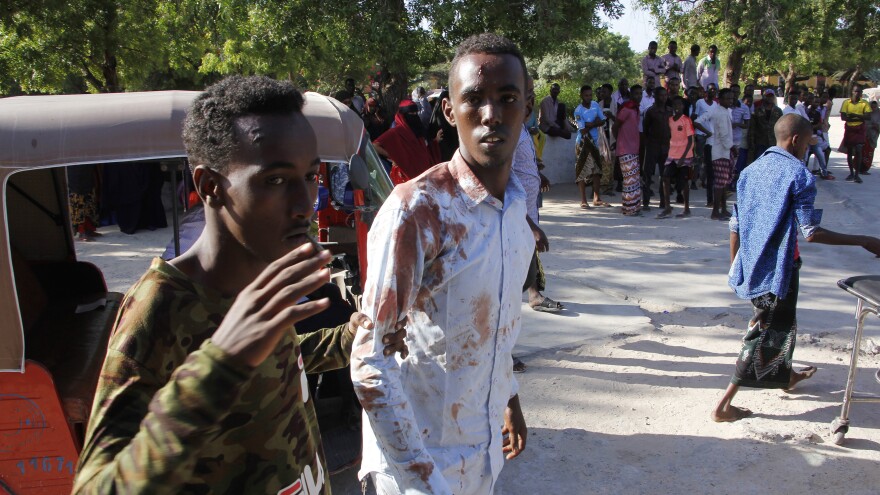Updated at 1:15 P.M. ET
A vehicle bomb exploded at a security checkpoint in Mogadishu, the capital of Somalia, killing at least 79 people Saturday morning, officials said.
Many of the victims were students. The attack is one of the deadliest in Somalia in the past two years. Government spokesman Ismael Mukhtar Omar said that at least 149 others were injured.
The area was "full of people. We can say also the students were the most vulnerable because the schools are open at 7:30 and the time was 7:30 when the explosion happened," said Dr. Abdulkadir Abdirahman Adan, who runs a free ambulance service in Mogadishu.
It happened as Somalis were starting their work week.
Television footage showed a bloodied bus that was reportedly filled with students.
Mogadishu Mayor Omar Muhamoud told reporters that many students were injured, Reuters reported.
An officer told Voice of America it was a truck bomb that exploded at a busy intersection for vehicles leaving and entering Mogadishu.
VOA's Harun Maruf tweeted video of the scene afterward.
Capt. Mohamed Hussein said the explosion targeted a tax collection center during the morning rush hour, according to The Associated Press.
No group immediately claimed responsibility for the attack, but Islamist militant group al-Shabab has repeatedly carried out similar attacks.
More than 500 people were killed in bombings in October 2017 in Somalia's deadliest attack to be blamed on al-Shabab.
Copyright 2021 NPR. To see more, visit https://www.npr.org.





